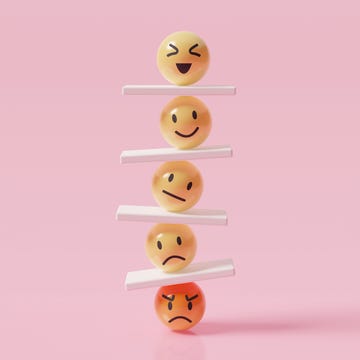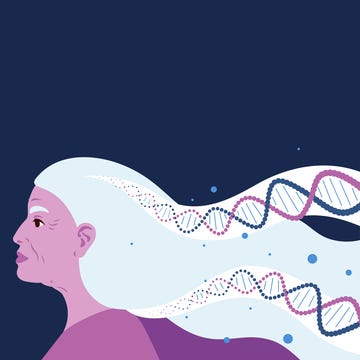With celebrity fans espousing its benefits for perimenopausal and menopausal women, it’s hardly surprising that the hormone testosterone has been hitting the headlines. But while advocates say that testosterone has transformed their health in midlife, research into its impact beyond improving libido is limited – and experts are divided about whether or not it should be prescribed for other menopausal symptoms.
So what is testosterone?
Although it’s usually associated with men, testosterone is also an important hormone for women – but levels decline around the time of the perimenopause and menopause and stay low, says consultant gynecologist Michael Savvas of the London PMS and Menopause Clinic. This age-related fall in testosterone can lead to a lack of energy, brain fog and reduced libido. And while testosterone is best known for influencing your sex drive, it may also help health in other ways – strengthening nerves in the brain and arteries that supply blood flow to the brain, and helping with muscle mass and bone strength, heart health and energy levels.
According to Mr Savvas, the level of testosterone in women in their 60s is around half that’s seen in women around 30 years of age. And while the value of oestrogen replacement to alleviate symptoms of the menopause is well-known, the impact of testosterone to improve symptoms such as low mood and anxiety often goes unrecognised, he adds.
But not all experts concur on the potential benefits – including the British Menopause Society. On its website, it states: “Regarding the role of testosterone, the current indication is for persistent low sexual desire after other contributory factors have been addressed. There is not enough evidence available to support it being prescribed for improving cognitive function, musculoskeletal health or improving bone density.”
How do I know if I need it?
According to the NHS, testosterone deficiency can contribute to a reduction in general quality of life, tiredness, depression, headaches, cognitive problems, osteoporosis and sarcopenia, as well as a loss of libido. Aside from using testosterone to treat low sexual desire, there’s currently a lack of research around the effectiveness of testosterone supplements to treat other symptoms of menopause. Emerging evidence does, however, suggest it may be protective against heart disease; a study from Sweden has shown that the incidence of heart disease was higher in women with low testosterone even when controlled for either risk factors.
How do I get it?
Testosterone is not currently licensed to treat symptoms of menopause, but a specialist doctor may be able to prescribe it. This is usually recommended if you have been on HRT for six months and have problems with low sex drive. It can also be prescribed “off licence” by private menopause experts.
What about side-effects?
According to The Menopause Charity, there are usually no side-effects with treatment as it’s given to replace the testosterone that you’re otherwise lacking. Very occasionally, women notice some increased hair growth in the area in which they’ve rubbed the cream - easily rectified by changing the area of skin on which you put it.













